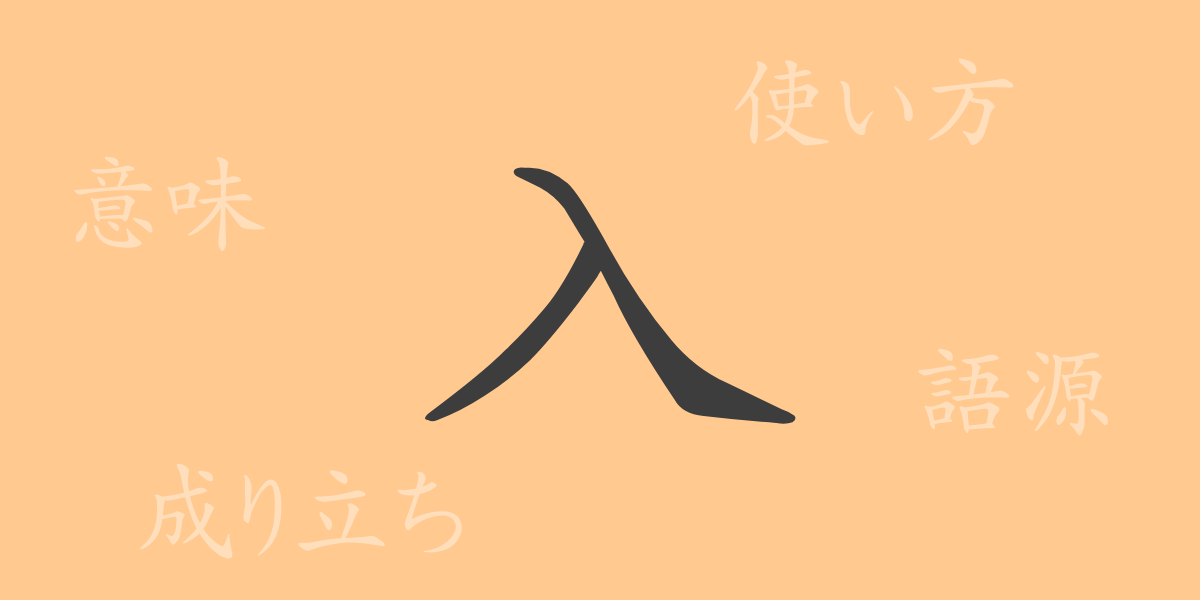Japanese culture deeply embeds kanji, each character rich with meaning and history. ‘入 (にゅう)’ is a frequently used character that belies its simple appearance with a profound history. This article delves into the charm of ‘入’, exploring its origins and modern uses. Let’s deepen our understanding of Japanese through the profound world of a single character.
Origins of ‘入 (にゅう)’
The kanji ‘入’ originated in ancient China, designed to depict a person entering somewhere. This prototype simplified the image of a person entering indoors, representing the basic concept of entering. Over time, this character has been adopted by various cultures and languages, gaining a multitude of meanings and applications.
Meaning and Usage of ‘入 (にゅう)’
‘入’ generally means ‘to enter,’ ‘to participate,’ or ‘to join.’ It is used to describe physical actions as well as abstract concepts and state changes. Additionally, it appears in phrases like ‘入学 (にゅうがく)’ for entering school or ‘入社 (にゅうしゃ)’ for joining a company, indicating significant life milestones, showing its wide applicability.
Readings, Stroke Count, and Radical of ‘入 (にゅう)’
‘入’ is cherished for its simplicity and is fundamental in the Japanese language.
- Readings: On’yomi ‘ニュウ’, Kun’yomi ‘い.る’, ‘はい.る’
- Stroke Count: Comprised of 2 strokes.
- Radical: ‘入’ itself serves as its radical, also known as ‘にゅうにょう’.
Phrases, Idioms, and Proverbs Using ‘入 (にゅう)’
There are numerous phrases, idioms, and proverbs that include ‘入’. Examples include ‘入魂 (にゅうこん)’ meaning to devote one’s soul, ‘入水 (にゅうすい)’ for entering water, ‘入口 (いりぐち)’ meaning entrance, and ‘入学 (にゅうがく)’ for entering a school. There is also a proverb, ‘口が堅い人は出入りが少ない’, which means ‘A person who can keep a secret has few interactions with others,’ highlighting the cultural significance of ‘入’ in conveying human behavior and ethics.
Conclusion on ‘入 (にゅう)’
The kanji ‘入’ plays a fundamental and important role in Japanese language. While simple in form, it is intricately linked to various aspects of life and psychology. Understanding this character is key to appreciating the richness of the Japanese language. As a common kanji, ‘入’ will continue to be cherished in our language for years to come.

























